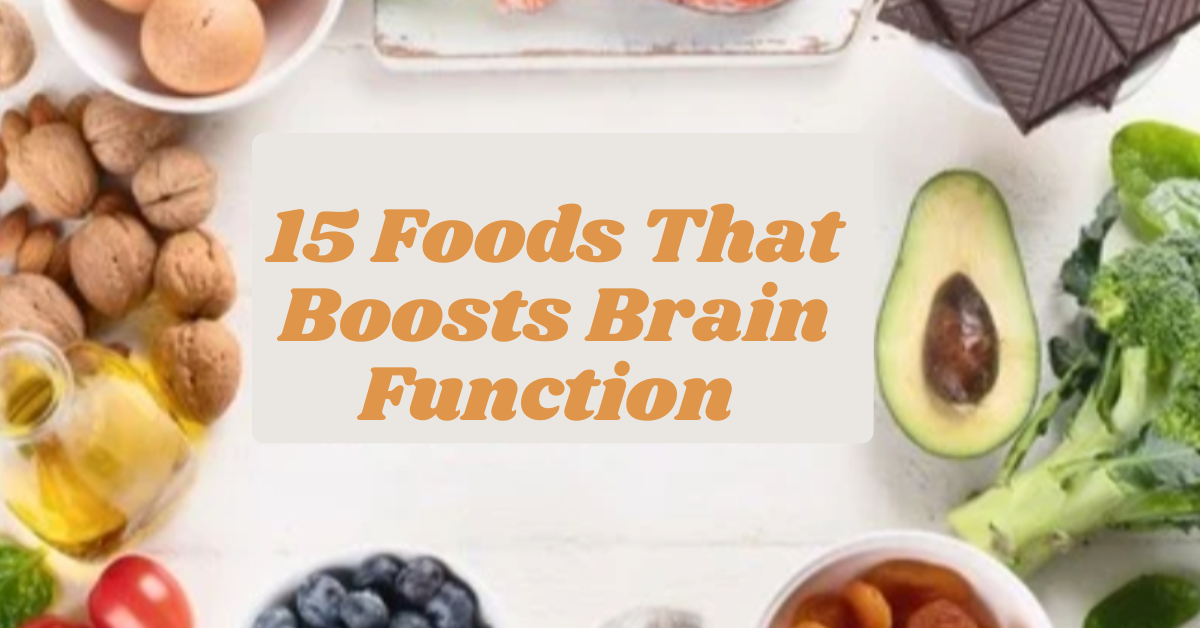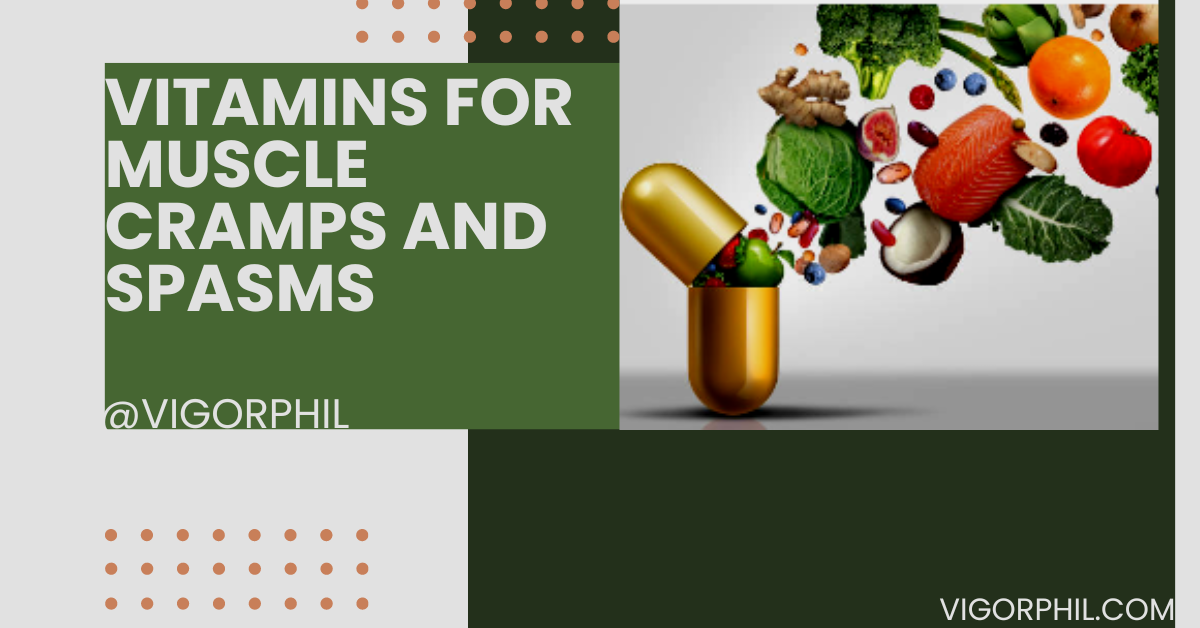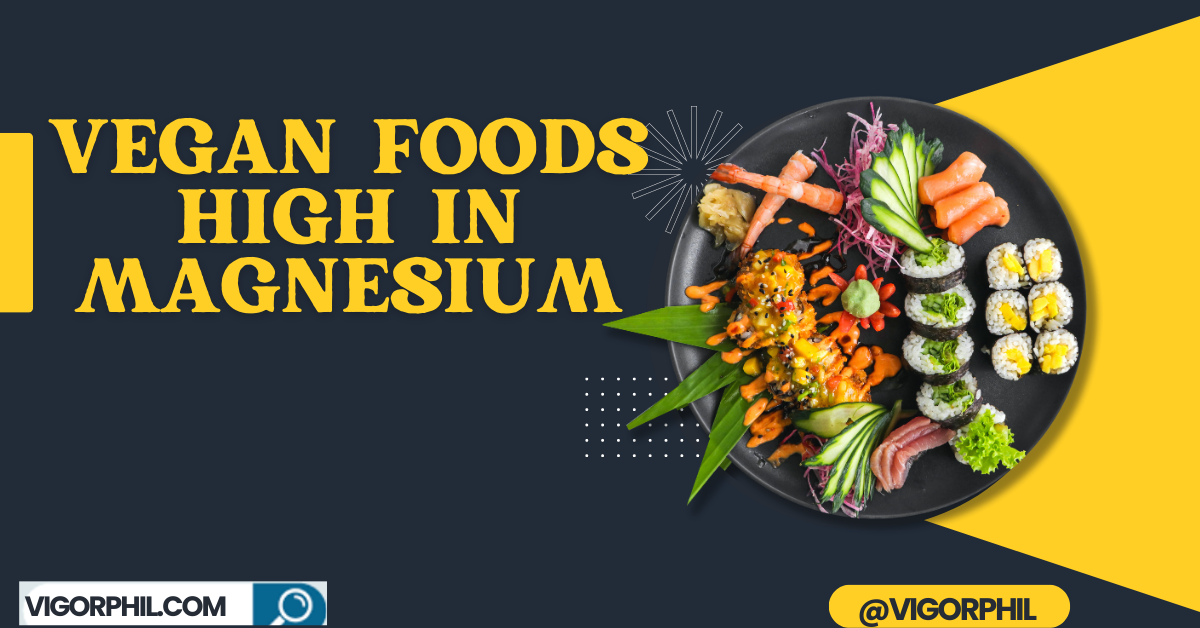Food plays a crucial role in maintaining overall health, including the health of the brain. Eating a balanced diet that includes certain nutrients, such as omega-3 fatty acids, antioxidants, and B vitamins, can support brain function, improve memory and concentration, and reduce the risk of cognitive decline.
Additionally, avoiding foods high in saturated fat, added sugar, and processed ingredients can also benefit brain health. Incorporating foods such as fish, leafy greens, nuts and seeds, berries, and eggs into your diet can provide your brain with the nutrients it needs to function at its best. In this article, we will be discussing 15 food that helps with brain function.
1. Blueberries help with BRAIN FUNCTION
Blueberries are a highly nutritious food that can help improve brain function. They are a rich source of antioxidants, particularly anthocyanins, which have been shown to have a protective effect on the brain. These antioxidants help to neutralize free radicals, which can damage cells and contribute to the development of cognitive decline and neurodegenerative diseases such as Alzheimer’s.
In addition to their antioxidant content, blueberries also contain other beneficial compounds that can help to improve brain function, such as vitamin C, vitamin K, and manganese. Studies have also shown that consuming blueberries can lead to improved memory, learning, and overall cognitive function.
Furthermore, the flavonoids in blueberries, known as anthocyanins, have been shown to improve communication between brain cells, and have a positive impact on memory and learning. This makes blueberries a great food to include in a diet for maintaining and improving brain function. They can be eaten fresh, frozen, or dried, and can be added to a variety of dishes, including smoothies, yogurts, oatmeal, and salads.
2. Avocados aids BRAIN FUNCTION
Avocados are a nutrient-dense food that has been shown to have potential benefits for brain function. They are high in healthy fats, specifically monounsaturated fats, which are important for maintaining healthy blood flow to the brain. Additionally, avocados are a good source of vitamin K, folate, and vitamin B6, all of which play a role in cognitive function and brain health.
Studies have also suggested that the compounds in avocados may help to protect the brain from damage and inflammation, which can lead to age-related decline in cognitive function. Overall, incorporating avocados into your diet as a regular part of your meals can be a delicious and easy way to support brain health.
3. Salmon helps with brain function
Salmon is a type of fish that is rich in omega-3 fatty acids, which have been shown to have a positive impact on brain function. Omega-3s are essential fats that our bodies cannot produce on their own, and must be obtained through our diet. Studies have found that consuming omega-3s can improve memory, reduce inflammation in the brain, and even lower the risk of developing neurological disorders such as Alzheimer’s and depression.
Additionally, Salmon is also a good source of protein and Vitamin D, which can also help boost brain function. Eating salmon as part of a healthy diet may help promote better cognitive function and overall brain health.
4. Nuts And Seeds improves brain function
Nuts and seeds are a great source of nutrients that can help improve brain function. Almonds, for example, are high in vitamin E, which is an antioxidant that can protect brain cells from damage. They also contain healthy fats, protein, and fiber.
5. Whole grains helps with brain function
Whole grains, such as quinoa and oats, are a good source of nutrients that help with brain function. They contain complex carbohydrates, which provide a steady source of energy for the brain, as well as vitamins and minerals such as B vitamins, iron, and zinc. Quinoa is also a good source of antioxidants and contains anti-inflammatory properties.
Oats are a good source of fiber, which can help lower cholesterol and improve blood sugar control. Whole grains also contain compounds such as phytochemicals and flavonoids that have been shown to have a beneficial effect on brain health. Eating a diet rich in whole grains has been associated with a lower risk of cognitive decline and a reduced risk of developing neurological disorders such as Alzheimer’s disease.
6. Pumpkin seeds are a good food for brain function
Pumpkin seeds are a good food for brain function because they contain a variety of nutrients that support cognitive health. They are rich in zinc, a mineral that is essential for cognitive development and memory, as well as magnesium which helps with brain plasticity. Pumpkin seeds also contain omega-3 fatty acids, which have been linked to improved brain function and a reduced risk of neurological disorders. The seeds also contain antioxidants such as Vitamin E and carotenoids that can help protect the brain from damage caused by free radicals.
Pumpkin seeds are also a good source of tryptophan, an amino acid that is needed to produce serotonin, a neurotransmitter that regulates mood and sleep. Eating pumpkin seeds may help to improve mood, reduce stress, and promote better sleep.
Overall, adding pumpkin seeds to your diet can be a great way to boost brain function and support overall cognitive health. They can be eaten as a snack, added to salads, or used as a topping for yogurt or oatmeal.
7. Dark, leafy greens improves brain function
Dark, leafy greens such as kale and spinach are rich in vitamins and minerals that have been shown to improve brain function. These greens are particularly high in folate, which plays a key role in cognitive development and memory function. They also contain antioxidants like Vitamin E and Vitamin K, which can protect the brain from damage caused by free radicals.
Additionally, they are a good source of iron, which is essential for healthy brain function. Eating a diet rich in dark, leafy greens can help improve focus, memory, and overall cognitive function.
8. Greek yogurt boosts brain function
Greek yogurt is a great food for boosting brain function. It is a good source of protein, which is essential for maintaining healthy brain function. The protein in Greek yogurt is also high in essential amino acids, such as tyrosine, which is needed for the production of neurotransmitters that help with cognitive function and memory.
Greek yogurt is also a good source of Vitamin B12 and phosphorus, which are both needed for healthy brain function. Additionally, Greek yogurt contains probiotics, which can improve gut health and the gut-brain connection, which can have a positive effect on mental health and cognitive function. Overall, Greek yogurt is a nutritious food that can help support brain health.
9. Beetroot is beneficial for the brain
Beetroot is a vegetable that is known to have positive effects on brain function. The high levels of nitrates found in beetroot are converted into nitric oxide in the body, which helps to increase blood flow to the brain. This improved blood flow can lead to better cognitive function, including improved memory and mental clarity.
Additionally, beetroot has been found to have antioxidant and anti-inflammatory properties, which may also help to protect brain health. Some studies have even suggested that beetroot may help to slow down age-related cognitive decline. Overall, adding beetroot to your diet may be beneficial for brain health and cognitive function.
10. Turmeric benefits brain function
Turmeric is a spice commonly used in Indian and Middle Eastern cuisine. It is known for its anti-inflammatory and antioxidant properties. Some research suggests that turmeric may have potential benefits for brain function, such as improving memory and reducing the risk of brain diseases.
However, more research is needed to confirm these effects and determine the appropriate dosage for human consumption. It’s also important to note that turmeric is not recommended for pregnant or breastfeeding women, or for people who are planning to have surgery, as it may increase the risk of bleeding.
11. Tomatoes improves brain function
Tomatoes are a rich source of lycopene, an antioxidant that has been linked to improved brain function. Studies have shown that lycopene may play a role in reducing the risk of cognitive decline and improving memory and learning.
Additionally, tomatoes are also a good source of vitamin C, which has been shown to help improve mood and reduce the risk of depression. Eating tomatoes as part of a healthy diet may help support brain health and function.
12. Walnuts are great food for brain health
Walnuts are great food for brain health because they are packed with nutrients that support cognitive function. They contain high levels of omega-3 fatty acids, which are essential for brain development and function. These fatty acids help to improve memory and reduce the risk of age-related cognitive decline.
Walnuts also contain antioxidants, such as vitamin E and melatonin, which protect the brain from damage caused by free radicals. Additionally, they are a good source of vitamin B6, which is important for the production of neurotransmitters that play a role in mood regulation. Eating a handful of walnuts daily can help improve brain function and overall cognitive health.
13. Chia seeds Aids brain function
Chia seeds are a good source of omega-3 fatty acids, which are important for brain function. They also contain antioxidants and fiber. However, more research is needed to fully understand the effects of chia seeds on brain function. It is recommended to consult with a healthcare professional before adding chia seeds or any other supplement to your diet.
14. AlmonDs improves brain function
Almonds are a good source of vitamin E, which is an antioxidant that protects cells, including those in the brain, from damage. They also contain magnesium, which is important for nerve function and can help improve memory and cognitive function.
Additionally, almonds are a good source of healthy fats, which can help improve overall brain health. Studies have also shown that eating almonds regularly may have a positive effect on cognitive function in older adults. Overall, almonds are considered as brain-friendly food due to their nutritional content.
15. walnuts boosts brain function
Walnuts are a good source of omega-3 fatty acids, which are important for brain function. They also contain antioxidants and other nutrients that may help protect the brain from damage.
Studies have shown that eating walnuts may improve cognitive function, including memory and learning. Additionally, the omega-3 fatty acids in walnuts have been linked to a reduced risk of depression and other mental health conditions.
Conclusion
In conclusion, there are a variety of foods that can support brain function, including leafy greens, berries, fatty fish, nuts and seeds, and whole grains. These foods are rich in nutrients such as omega-3 fatty acids, antioxidants, and B vitamins, which have been shown to improve cognitive function, memory, and mood.
Incorporating a diet rich in these foods may help protect the brain from damage and reduce the risk of mental health conditions. It’s important to remember that there is no one-size-fits-all diet that is perfect for everyone, it’s always recommended to consult with a healthcare professional or a nutritionist before making any changes to your diet.











